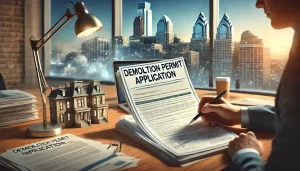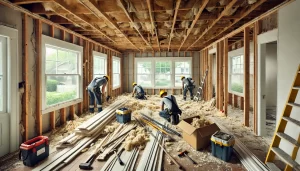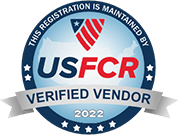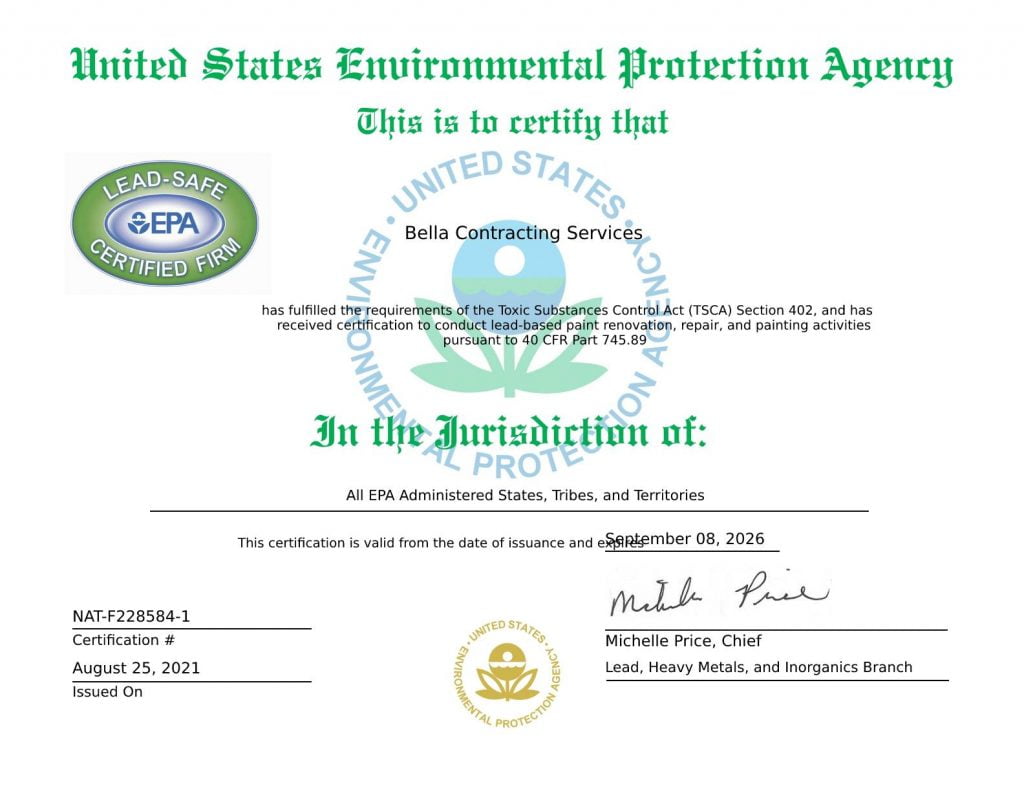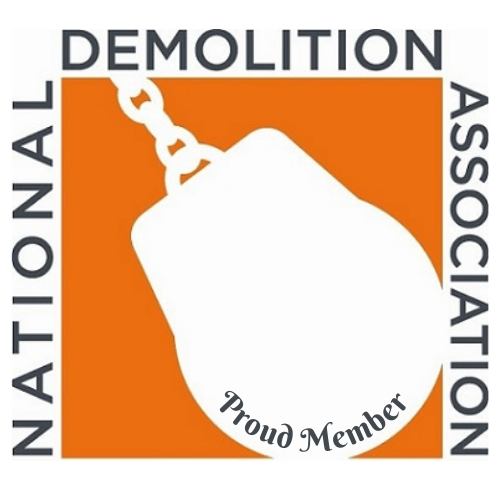The City of Philadelphia has a number of regulatory requirements for any demolition work. These regulations fulfill a number of roles, including:
- Ensuring public and worker safety
- Preventing environmental contamination
- Ensuring that all work is up to code
- Minimizing disruptions and nuisances
- Protecting the financial interests of various stakeholders
In this article, we’ll take a look at the many permitting, health and safety, and insurance and bonding requirements laid out by the City of Philadelphia. While this information cannot capture the full complexity of the various legal and regulatory requirements governing demolition in the City, it should give you an appreciation of the framework in which demolition contractors do their business in Philadelphia.
City of Philadelphia Permitting Requirements
Several permits are required for both residential and commercial demolition in Philadelphia. Fortunately, the City of Philadelphia has simplified the process of getting permits for complete demolitions by creating a website on which applications for permits can be accessed. A “complete demolition” is any demolition in which: “you remove more than two-thirds of existing framing and alter any outside wall”.
Permits are issued by the Department of Licenses and Inspections (L&I). To obtain a complete demolition permit, contractors must be fully licensed and submit detailed demolition plans to L&I. Several permits may be required along with the complete demolition permit, including:
- Permits from the Department of Streets to close off sidewalks and streets
- A permit from the Department of Health approving dust control measures
- A permit from the Water Department to turn off water service to the affected area
- A zoning permit
- A plumbing permit
- Permits to erect shelter platforms for sidewalks
- And more
You can find more information, including information on regulations governing crane usage and waste hauling, on L&I’s demolition permit information page.
Health & Safety Regulations
Many Philadelphians still hold onto the painful memory of the 2013 Market Street Building collapse. Since then, building and demolition regulations have been tightened. Compliance with local, state, and federal safety regulations is essential; demolition contractors must do their part to keep Philadelphians safe.
Health and safety regulations in Philadelphia are governed by a number of different local, state and federal organizations, including:
- The Pennsylvania Department of Environmental Protection (PA DEP)
- The Environmental Protection Agency (EPA)
- The Occupational Safety and Health Administration (OSHA)
- Various departments of the City of Philadelphia
The goals of these regulatory bodies vary, with some (like OSHA and the City) protecting the health and safety of workers and residents from immediate dangers, while others (like the PA DEP and the EPA) preventing environmental contamination.
Contractors are required to have specialists on-site to keep everyone safe. This includes a site safety manager who has completed OSHA safety courses and a demolition supervisor who has completed the Philadelphia Demolition Contractor Examination.
By complying with regulations, demolition contractors in Philadelphia can prevent air and water contamination, reduce noise pollution, protect utilities, and prevent accidental injuries and death.
Insurance & Bonding Requirements
In order to obtain a Demolition Contractor’s License, contractors must be bonded and insured. The minimum insurance requirements are as follows:
- General Liability: $2,000,000 per occurrence
- Automobile Liability Insurance: $300,000
- Worker’s Compension
- $100,000 per accident
- $100,000 per employee
- $500,000 policy limit
Additionally, contractors must be bonded. Bonds provide guarantees that work will be completed. These bonds must be underwritten for at least $1,000,000. Requirements are as follows:
- Class A: Provide a license bond for $50,000 with an original seal
- Class B: Provide a license bond for $10,000 with an original seal
Class B has a lower bond requirement because it sets limits on the structures that can be demolished. Class A licenses permit the contractor to demolish any building.
Conclusion
While the framework of regulations and permits in Philadelphia is complex, it’s not without good reason; after all, the demolition process itself is complex.
By adhering to these regulations, demolition contractors in Philadelphia can protect the financial interests of their stakeholders, the health and safety of Philadelphians, the environment, and more.
Need to conduct a demolition in Philadelphia? We can help. Get in touch with Bella Contracting today.



